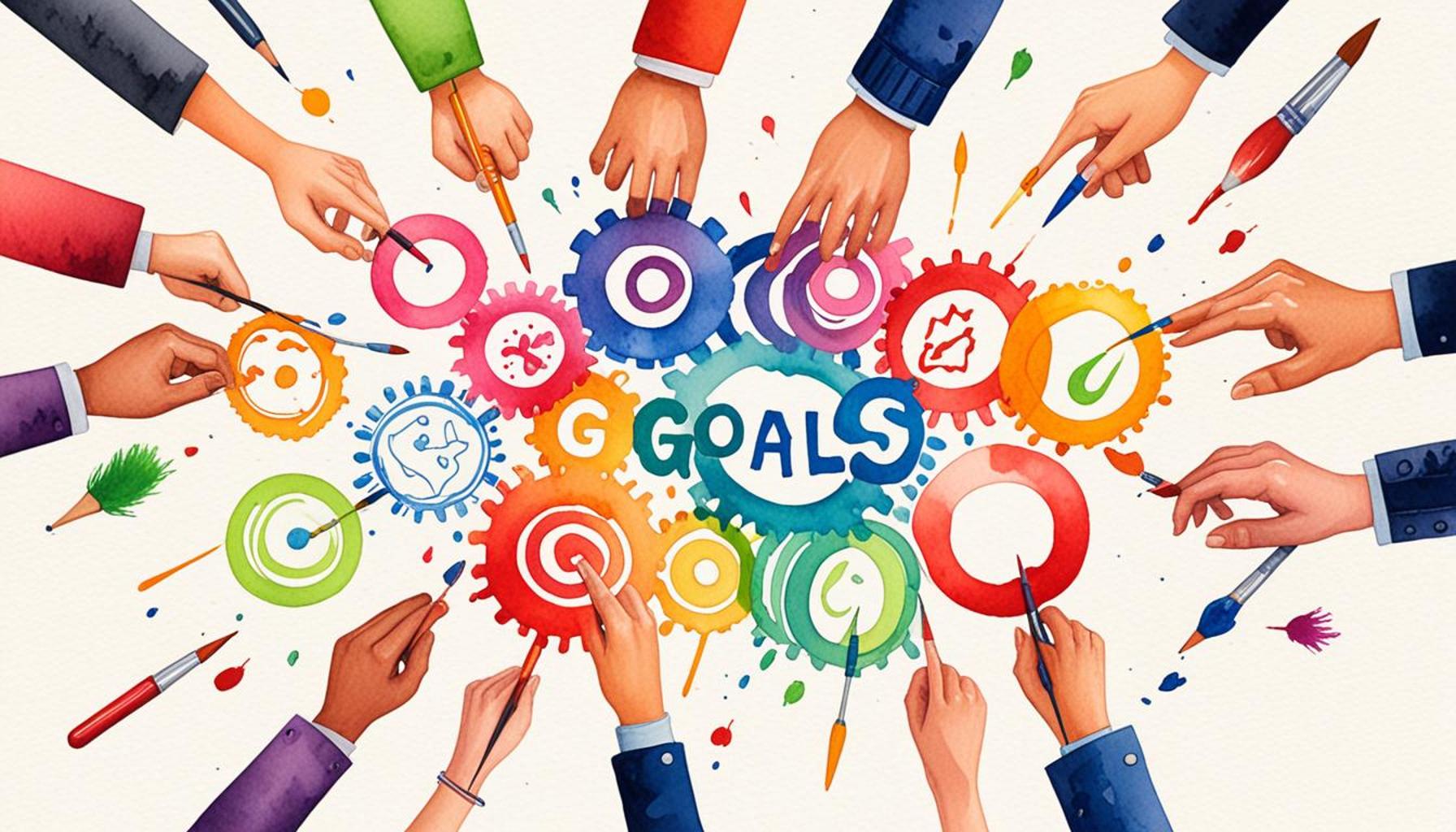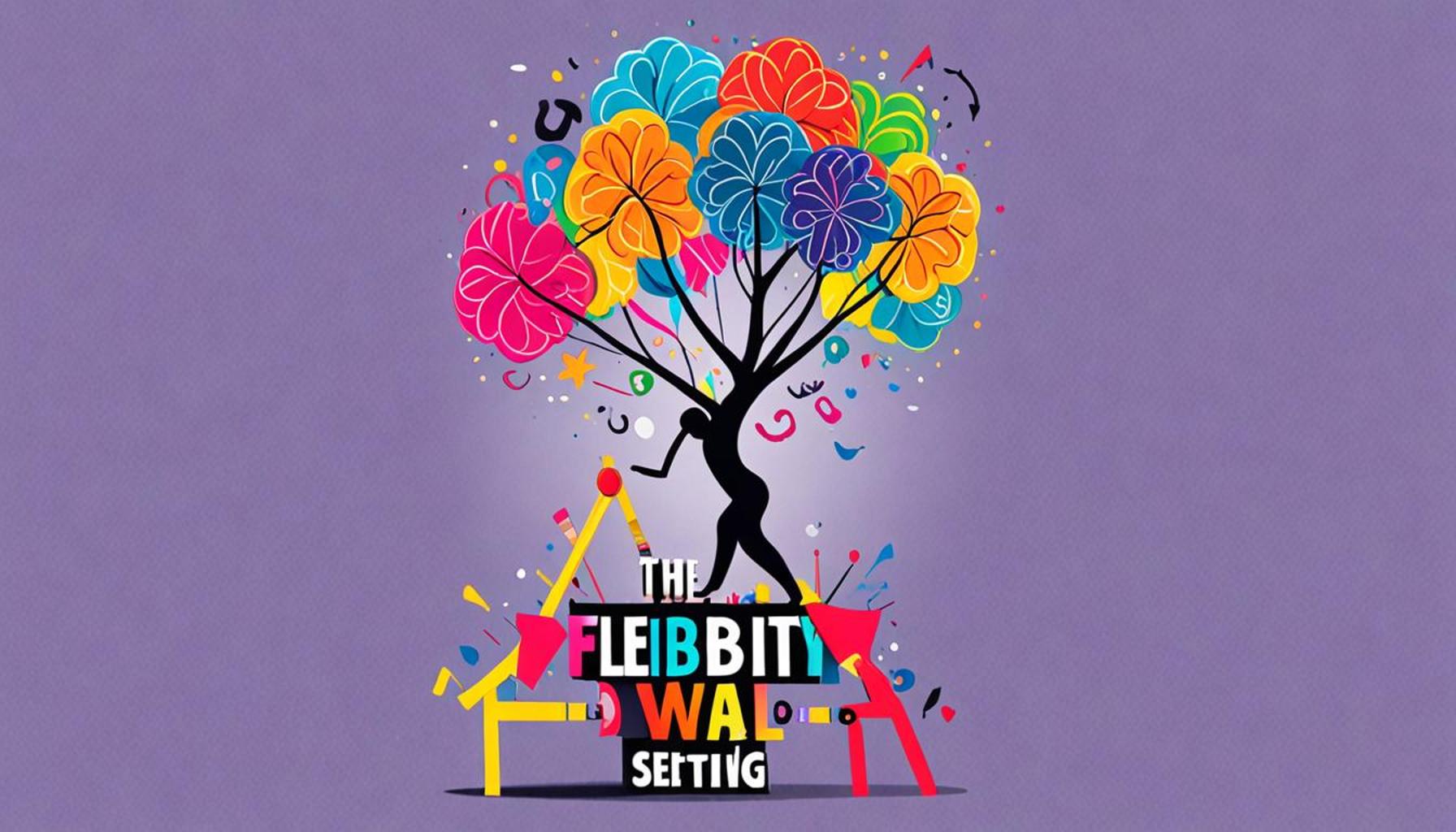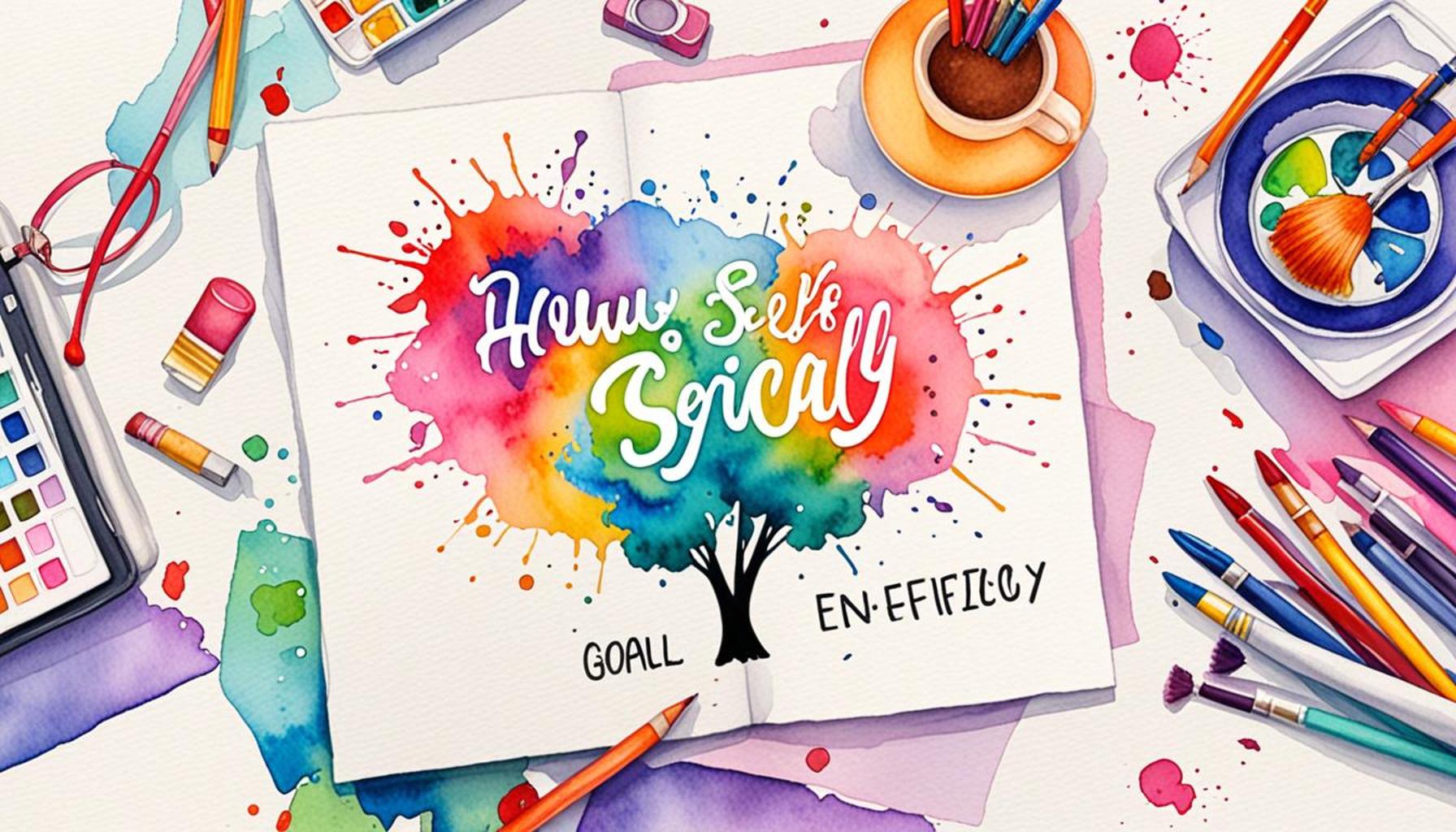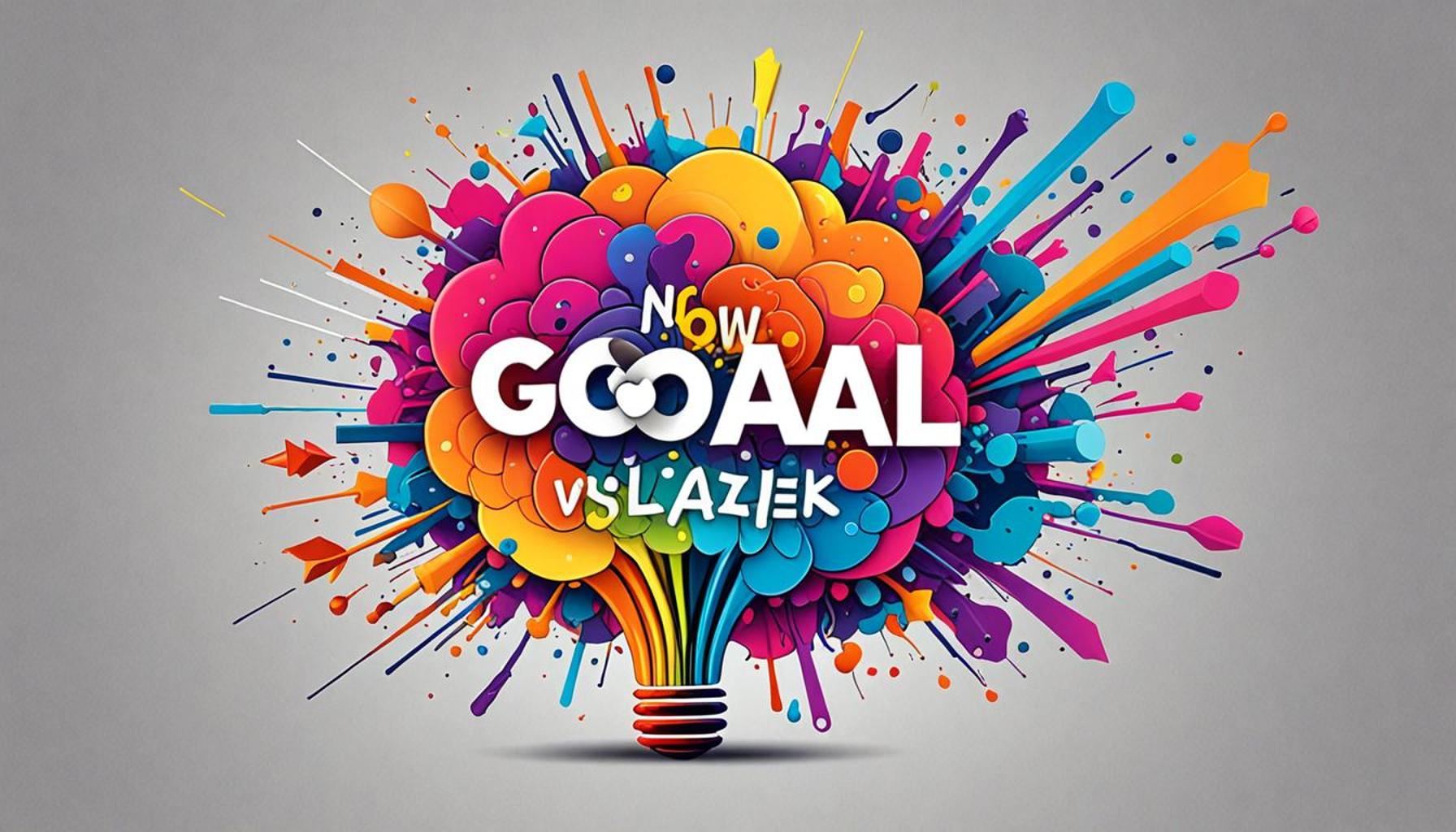Collective Goals: How Defining Objectives in Groups Can Boost Personal and Professional Growth

The Significance of Collective Goals in Nigeria
In the rapidly evolving landscape of Nigeria, where dynamism meets diversity, the importance of collective goals has never been more pronounced. While individual achievements are celebrated, the power of setting mutual objectives is a catalyst for both personal growth and collective advancement in communities. This communal approach can be instrumental, especially in fostering unity and collaboration across Nigeria’s multifaceted society.
One of the most notable benefits of community-oriented goal setting is enhanced collaboration. In Nigeria’s bustling cities, such as Lagos or Abuja, teamwork can lead to not just stronger workplace relationships but can elevate entire neighborhoods. For instance, local businesses that collaborate to promote each other’s products during festive periods not only boost individual sales but also create a sense of community pride. Initiatives like the “Made-in-Nigeria” campaigns illustrate how collective goals can bolster both individual enterprises and the national economy.
Another advantage lies in the diverse perspectives brought forth by group participation. Every individual possesses unique backgrounds and experiences, particularly in a country as diverse as Nigeria. For example, when organizations seek to launch new products or services, involving team members from various ethnic backgrounds can result in innovative approaches that appeal to a broader audience. Such collective brainstorming sessions have been key contributors to the success of various startups throughout the country.
Shared accountability is another cornerstone of effective team dynamics. In group settings, the commitment to a common goal spurs individuals to maintain motivation and productivity. The rise of cooperative societies across Nigeria serves as an exemplary model. Members hold each other accountable for contributions, cultivating a sense of responsibility that ensures the group not only meets its objectives but often exceeds them.
In a diverse social structure like Nigeria’s, collective goal setting is transformative and feels deeply rooted in community traditions. As seen in initiatives by NGOs targeting educational advancements in rural areas, where communities rally to support children’s learning, the collective spirit becomes a powerful tool for societal change. Goals defined by the collective not only raise performance standards but also nurture essential skills such as leadership and communication.

As we further explore the implications of this unified approach to goal setting, we can uncover strategies that enhance both personal and professional outcomes. From community development projects to educational reforms, working towards common aspirations can lead to groundbreaking transformations. By harnessing the power of collective goals, individuals can discover untapped potential and initiate change on both personal and community levels.
ADDITIONAL INSIGHTS: Expand your understanding here
Harnessing the Power of Collaboration
Collective goals are more than just a collective wish list; they serve as a powerful force that shapes both community dynamics and individual trajectories. In Nigeria, where the cultural landscape is rich with diversity, collaborative objective setting has emerged as a crucial mechanism for achieving sustainable growth. By tapping into the collective intelligence of group members, individuals are equipped to unearth transformative ideas and solutions that drive both personal and professional successes.
The practice of setting collective goals fosters a shared vision that aligns interests and strengths. When individuals come together with a unified purpose, they create an environment ripe for creative problem-solving and collective ingenuity. For instance, during initiatives aimed at addressing social issues such as health care access or environmental protection, participants from different backgrounds contribute unique perspectives that enrich discussions. Research shows that organizations with clearly defined collective objectives often outperform those with solely individual-oriented goals, particularly in sectors like education and public health.
One key feature of collaborative goal-setting is the combination of strengths. Every participant brings their own set of talents, skills, and experiences to the table. Utilizing this diverse range of abilities allows groups to tackle challenges from various angles. Examples abound in Nigeria where community leaders engage youths in development projects designed to build local infrastructure. By combining efforts, they not only harness individual expertise but also foster a spirit of unity that enhances overall project efficacy.
- Enhanced Creativity: Diverse groups often lead to innovative solutions, as varying viewpoints spark new ideas.
- Efficient Resource Allocation: By pooling resources, groups can tackle larger projects that may be unmanageable for individuals alone.
- Stronger Networks: Collaborating with others opens doors to new connections that can prove beneficial for future projects and opportunities.
Moreover, the process of working towards collective goals strengthens interpersonal skills. Important life skills such as communication, negotiation, and conflict resolution are honed through collaboration. This is particularly relevant in Nigeria’s vibrant communities, where face-to-face interactions fuel relationships. Consider the success of cooperative farming societies in regions like Oyo or Kaduna, where members cultivate not just crops but also long-lasting partnerships. Through shared objectives, they develop trust and understanding, integral components of a thriving cooperative culture.
As individuals identify and work towards collective goals, they not only contribute to the success of the group but also nurture their own personal growth. Setting aside individual aspirations for the greater good may appear counterintuitive at first, but it often leads to unexpected benefits. Participation in collaborative initiatives can uplift individuals, giving them skills and experiences that enrich their professional portfolios and broaden their horizons.
In essence, the journey toward defining collective objectives can be a transformative experience, leading to enhanced performance, personal growth, and ultimately, a cohesive society. As Nigerian communities continue to navigate challenges and seize opportunities, the collective framework will be essential in forging a path toward a more unified and prosperous future.
| Advantage | Details |
|---|---|
| Enhanced Accountability | Setting collective goals fosters a sense of responsibility among group members, prompting individuals to stay committed to their contributions. |
| Increased Collaboration | Common objectives encourage teamwork, allowing diverse skills to merge and lead to creative solutions, enriching both personal skills and professional outcomes. |
When groups set collective goals, they create a shared vision that transcends individual ambitions. This unification of purpose can significantly boost motivation and drive among team members, ultimately leading to enhanced productivity and satisfaction. Each participant feels more engaged, as their contributions are recognized as vital to the group’s success. By focusing on collective achievements, individuals not only grow personally but also develop professional competencies that are valued in the workplace.Moreover, the process of collaborating towards shared goals cultivates a culture of trust and communication. The exchange of ideas and perspectives becomes seamless, which is essential for navigating challenges collectively. As groups tackle objectives, the opportunity for mentoring and skill sharing becomes apparent, enabling members to learn from one another, further sharpening their abilities. In essence, the power of defining objectives within a group setting not only propels members towards success but also enhances their individual growth trajectories, making it an indispensable practice in both professional and personal realms.
RECOMMENDED: Check out this similar article
Leveraging Collective Goals for Professional Development
The resolution of collective goals not only propels individuals towards success but also acts as a catalyst for professional development. In today’s fast-paced world, the intersection of collaboration and goal-setting has become increasingly important. For instance, organizations in Nigeria are beginning to recognize the value of fostering teamwork as a conduit for creating a culture of accountability and shared success.
One effective framework that has gained traction is the SMART criteria: Specific, Measurable, Achievable, Relevant, and Time-bound goals. When groups define their objectives using this framework, members gain clarity regarding expectations and performance metrics. Educational institutions, for example, have begun integrating collective SMART goal methodologies into curriculum development. By aligning student projects with community-driven needs, educators can foster not only academic growth but also real-world impact.
The power of collective goals is magnified in professional settings. Conferences and workshops that bring diverse stakeholders together provide an unparalleled opportunity for individuals to share knowledge, experiences, and challenges. For example, the annual TechFest held in Lagos serves as a melting pot for tech enthusiasts, allowing participants to set objectives that bridge the gap between policy and innovation. These gatherings not only stir fresh conversations but also encourage the formation of networks that can lead to future collaborations.
The Role of Accountability in Collective Objectives
When individuals commit to collective goals, they inherently hold each other accountable. This accountability mechanism fosters a sense of responsibility, thus enhancing individual commitment to the group’s success. In Nigeria’s bustling entrepreneurial scene, platforms such as co-working spaces have emerged to support budding startups. These environments promote shared objectives, often setting milestones that teams work towards collectively. Regular check-ins and peer evaluations help maintain momentum, ensuring that progress is continually monitored and celebrated.
Additionally, collective goal settings provide avenues for constructive feedback. In professional development, such feedback is essential as it brings to light areas for growth and improvement. A prime example is found within mentorship programs, where both mentors and mentees collaboratively establish learning objectives. This synergy not only helps mentees acquire new skills but also allows mentors to refine their leadership techniques—a perfect example of mutual growth.
Impact on Emotional Intelligence
Engaging in collective objectives also nurtures emotional intelligence, a key factor for personal and professional success. Individuals learn to navigate complex social dynamics, recognize the strengths and weaknesses of their peers, and develop empathy—necessary skills when working in teams. In Nigeria, groups engaged in community service projects frequently witness the profound impact of their contributions on both their own lives and the lives of those they help. The emotional ties formed during these interactions foster a sense of belonging and commitment, reinforcing the idea that one’s success is intertwined with that of others.
Furthermore, by stepping outside their comfort zones to confront diverse perspectives, individuals cultivate resilience—a vital trait in both personal and professional growth. This adaptability enhances problem-solving capabilities, enabling individuals to navigate challenges more effectively. As collaborative projects unfold, participants are often pushed toward innovation, leading them to discover untapped talents and abilities that can elevate their careers.
Ultimately, the establishment of collective goals represents less of a limitation on individual ambition and more of an amplification of possibilities. As Nigerian communities harness this approach, the prospect of creating a future founded on teamwork, shared aspirations, and mutual support unfolds, paving the way for a richer, more interconnected society.
YOU MAY ALSO LIKE: Read read another article
Conclusion: The Path to Collective Empowerment
In an increasingly interconnected world, the necessity of embracing collective goals stands at the forefront of both personal and professional development. The intricate web of collaboration facilitates not merely the achievement of set objectives but also enhances individual capabilities, emotional intelligence, and leadership skills. By employing frameworks such as the SMART criteria, groups can clearly articulate their ambitions and track their progression, ultimately leading to a greater sense of achievement and fulfillment.
As highlighted through various initiatives, from tech conferences in Lagos to community engagement projects, the potential of collective goal-setting transcends mere productivity. These collaborative efforts foster a sense of belonging and mutual growth, reinforcing that individual success is often intertwined with the success of others. The accountability mechanisms established through shared objectives drive individuals to hold themselves and their peers responsible, ultimately creating a robust culture of support and encouragement.
Moreover, as individuals push beyond their comfort zones, they cultivate resilience and adaptability—traits that are indispensable in navigating today’s dynamic challenges. The emotional connections formed through these experiences not only uplift personal aspirations but also promote a bigger vision of community-oriented success.
As Nigeria and its diverse communities continue to grasp the significance of collective goals, the potential for transformative change grows immensely. Embracing these principles becomes a tool for crafting a future characterized by synergy, shared achievements, and a vibrant societal fabric. Ultimately, the journey towards defining collective objectives is not just about achieving targets; it is about enriching lives, enhancing connections, and building a legacy of collaborative empowerment.


